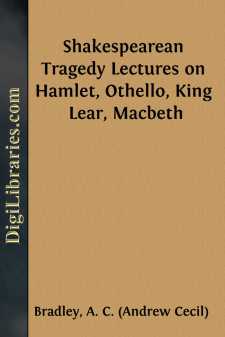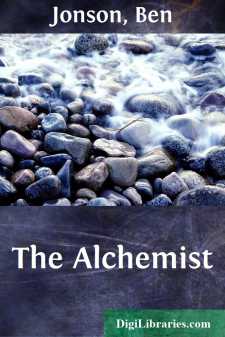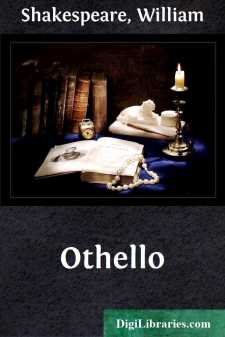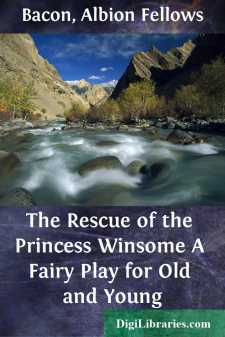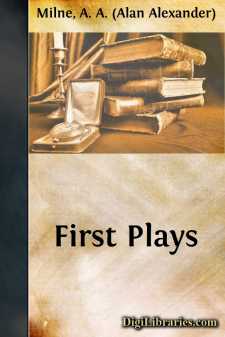Drama Books
Sort by:
LECTURE I THE SUBSTANCE OF SHAKESPEAREAN TRAGEDY The question we are to consider in this lecture may be stated in a variety of ways. We may put it thus: What is the substance of a Shakespearean tragedy, taken in abstraction both from its form and from the differences in point of substance between one tragedy and another? Or thus: What is the nature of the tragic aspect of life as represented by...
more...
by:
Ben Jonson
INTRODUCTION The greatest of English dramatists except Shakespeare, the first literary dictator and poet-laureate, a writer of verse, prose, satire, and criticism who most potently of all the men of his time affected the subsequent course of English letters: such was Ben Jonson, and as such his strong personality assumes an interest to us almost unparalleled, at least in his age. Ben Jonson came of the...
more...
ACT I. Various groups of Nobles, Citizens, Merchants, Foreigners, Water-Carriers, Flower Girls, &c., pass and repass. Procession of the Doge, in state, across the square. ANTONIO, SALARINO, and SALANIO come forward. Ant. In sooth, I know not why I am so sad;It wearies me; you say, it wearies you;But how I caught it, found it, or came by it,What stuff 'tis made of, whereof it is born,I am to...
more...
ACT IV SCENE I. Cyprus. Before the Castle. [Enter Othello and Iago.]IAGOWill you think so? OTHELLO Think so, Iago? IAGO What,To kiss in private? OTHELLO An unauthoriz'd...
more...
THE FIRST ACT The scene is a drawing-room, prettily but somewhat showily decorated. The walls are papered with a design representing large clusters of white and purple lilac. The furniture is covered with a chintz of similar pattern, and the curtains, carpet, and lamp-shades correspond. In the wall facing the spectator are two windows, and midway between the windows there is the entrance to a...
more...
INTRODUCTION The City Bride, by Joseph Harris, is of special interest as the only adaptation from the canon of John Webster to have come upon the stage in the Restoration. Nahum Tate’s Injur’d Love: or, The Cruel Husband is an adaptation of The White Devil, but it was never acted and was not printed until 1707. The City Bride is taken from A Cure for a Cuckold, in which William Rowley and perhaps...
more...
ACT I. Scene I. Witch bends over fire in middle of orchard, brewing a charm in her caldron. Ogre stalks in, grinning frightfully, swinging his bludgeon in triumph. Ogre Ha, old witch, it is done at last! I have broken the King's stronghold! I have stolen away his children twain From the clutch of their guardsmen bold. I have dragged them here to my castle tower. Prince Hero is strong and fair. But...
more...
INTRODUCTION These five plays were written, in the order in which they appear now, during the years 1916 and 1917. They would hardly have been written had it not been for the war, although only one of them is concerned with that subject. To his other responsibilities the Kaiser now adds this volume. For these plays were not the work of a professional writer, but the recreation of a (temporary)...
more...
by:
Alfred Hennequin
CHARACTERS. , with a night adventure. , Selwyn’s unwilling slave. , of the Kilkenny Irregulars. , Professor of Penmanship. , a boy in buttons. , Sam’s Wife. , Sam’s Daughter. , secretly married to Fred. , a parlor maid. .—At first as described in the “Scene,” afterwards in ordinary dress. .—Walking costume. .—Exaggerated military style. .—Eccentric old gentleman’s costume. and...
more...
by:
Bernard Shaw
ACT I It is after dinner on a January night, in the library in Lady Britomart Undershaft's house in Wilton Crescent. A large and comfortable settee is in the middle of the room, upholstered in dark leather. A person sitting on it [it is vacant at present] would have, on his right, Lady Britomart's writing table, with the lady herself busy at it; a smaller writing table behind him on his left;...
more...


